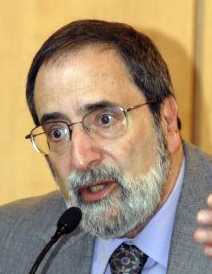By Laurie Baron

SAN DIEGO — Adapted from Yasmina Khadra’s novel, The Attack deftly navigates the shoals of the Israeli/Palestinian Conflict. In an understated but convincing performance, Ali Suliman portrays Amin, an Israeli Arab surgeon who has achieved full integration into Israeli society. The film opens with him receiving a prestigious award from his Israeli colleagues who clearly appreciate his companionship as well as his professional skills
This display of interethnic harmony abruptly changes when a suicide bomber kills 17 Israelis. After operating on many of the injured, Amin is asked to identify a corpse in the morgue. It turns out to be the remains of his wife Sihan. The Shin Bet has determined that Sihan was responsible for the bombing. Captain Moshe, played by Israel’s version of Telly Sevalas, Uri Gavriel, roughly interrogates Amin convinced that he must have been aware of his wife’s clandestine activities. Jewish vigilantes ransack his apartment and scrawl anti-Palestinian slogans on its wall.
Amin overcomes his initial denial to realize that his wife was the perpetrator. In a series of soft-focused flashbacks, he recalls moments in his relationship with her. What these reveal is how enigmatic she was, and, how oblivious he was to hints of her radicalization as he busily pursued his career This prompts Amin to visit Nablus where Sihan’s family resides to find out what or who transformed her from a loving spouse into a homicidal ideologue. Her relatives perceive him as an Israeli collaborator. Amin encounters Sihan’s face everywhere on posters and buttons celebrating her heroic martyrdom. Although his wife was a Christian, he wonders if a prominent anti-Israeli imam poisoned her mind, but he also meets with a local priest who spouts the same venomous hatred of the Israelis. His quest eventually leads to the rubble of Jenin where a telling piece of graffiti indicates that the Israeli siege of the city may have been “ground zero” for his wife’s turn to terrorism.
Returning to Israel, Amin’s friends suspect that he is withholding information about those who masterminded the bombing plot. If he is privy to such knowledge, he refuses to divulge anything since he doesn’t want to justify more Israeli repressive measures. Kim (Evgenia Dodena), a Jewish coworker, offers him sanctuary and solace, but even her gesture of genuine affection and compassion cannot restore his trust in Israel. Yet he also rejects the senseless cycle of violence and retaliation that periodically erupts in the Occupied Territories.
It is the ambiguity of Amin’s status, whether as an Israeli Arab or the husband of a Palestinian extremist who concealed her convictions from him, that is at the core of the film. By making the story hinge on an act of extremism, Doueiri and Khadra heightened the dramatic stakes, but missed an opportunity to explore the complex identities of Israeli Arabs. The contrast between the shots of Tel-Aviv and Nablus visualize two mutually exclusive worlds.
The Lebanese-born director Doueiri admits he “grew up hating Jews and Israel,” particularly the Christian militia which Israel backed as its proxy in his homeland. He studied in the United States and received his degree from San Diego State. A viewing of the Holocaust documentary “Night and Fog” and a visit to Israel moderated his attitudes. He hopes the film humanizes the ongoing conflict.
Unfortunately, the League of Arab States has requested its member nations to boycott the film because part of it was filmed in Israel. Doueiri believes the real reason for the League’s decision is that the movie “doesn’t demonize Jews.” Some critics have charged that the movie serves as a rationale for terrorism, but trying to understand the motives for terrorism is not equivalent to condoning it. Doueiri’s balanced approach is certainly more thoughtful than that offered by the optimistic ending of last year’s film The Other Brother. That it rankles Arabs and Jews alike testifies to the balance Doueiri sought to achieve.
The Attack opens July 26th at the Landmark’s Hillcrest Cinemas.
*
Lawrence Baron recently retired from being the Nasatir Professor of Modern Jewish History at San Diego State University. He is the author of Projecting the Holocaust into the Present: The Changing Focus of Contemporary Holocaust Cinema (Rowman and Littlefield: 2005) and editor of The Modern Jewish Experience in World Cinema (Brandeis University Press: 2011). He may be contacted at lawrence.baron@sdjewishworld.com